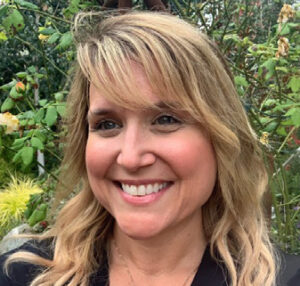Washington State’s population is growing, and a significant part of that growth is occurring in exurban areas where it threatens agricultural land and animal habitats. Futurewise is a Washington State–based organization that focuses on enabling sustainable community development while also protecting the state’s land and water resources. It advocates for long-term development plans and smart laws and regulations that will allow residential and commercial growth to coexist with agriculture. In this interview, Alison Cable and Tim Trohimovich tell us about Futurewise’s origins and current work.
Irrigation Leader: Please tell us about your backgrounds and how you came to be in your current positions.
Alison Cable: I grew up in the Tri-Cities. I went to Washington State University in Pullman and then got a graduate degree in public administration at Portland State University. I worked on various resource conservation programs for local and regional governments in the Portland area. I moved back to the Tri-Cities to be close to family, and I wanted to continue to build opportunities to make this community great while working on the things I’m passionate about related to sustainability and sustainable land use. Now, I am the Tri-Cities program manager for Futurewise.
Tim Trohimovich: I’m also a native of Washington State, born and raised in Aberdeen. I spent a couple of years in Oregon when I was getting my various degrees. I have an undergraduate planning degree and a law degree. I’m the director of planning and law for Futurewise. I work in both capacities as a land use planner and as a land use and environmental attorney for the organization.
Irrigation Leader: Please tell us about Futurewise.
Alison Cable: We are a nonprofit organization that has worked throughout Washington for the last 30 years to encourage healthy, equitable, and opportunity-rich communities to protect farmland, forests, and water resources through land use policies and practices.
Tim Trohimovich: Futurewise is also the only nonprofit working statewide on protecting land and land use planning. It was founded in 1990, the same year that Washington’s Growth Management Act (GMA) was passed.
Alison Cable: From 1960 to 1990, our state experienced a 41 percent population increase. Much of it was in the unincorporated areas outside of cities, which strained our local government resources and led to the implementation of the GMA. In the Tri-Cities, we continue to see huge population increases and exponential growth; we are one of the fastest-growing regions in the state. Futurewise has focused much of our efforts on protecting natural resources. We work on the implementation of the GMA, the establishment of strong local government policies and long-term comprehensive plans, and the management of urban growth areas.
Tim Trohimovich: Since its founding, one of the main focuses of the organization has been the conservation of agricultural lands. We work to protect farms and to retain water for agriculture. We work through advocacy and through reviewing and commenting on comprehensive plans and development regulations.
Irrigation Leader: Please describe your membership.
Tim Trohimovich: More than 13,000 individuals statewide have signed up to receive information from us, and many of them give one-time or monthly donations to support our work. The surveys we’ve done show that a lot of our members are longtime Washingtonians who are concerned about the future development of the state. Our members include farmers and ranchers, but also software engineers, people who work in restaurants, and other folks.
Irrigation Leader: Would you tell us more about your work preserving farm ground?
Alison Cable: The GMA requires citizens to pay attention to preserving farm ground. One of the focuses of the GMA is the way in which low-density residential development threatens agricultural land. Washington and Oregon have two of the strongest statewide policies to protect agriculture in the nation.
Tim Trohimovich: We try to conserve agricultural lands in two ways. We want to focus growth in our existing cities and towns. The GMA is the Growth Management Act, not the Growth Stopping Act. It recognizes that Washington is a fast-growing state and that we need to plan for that growth.
We work with cities and towns to accommodate growth while also working with counties to identify high-quality agricultural land and protect it from incompatible uses.
Irrigation Leader: How would you define low-density development?
Tim Trohimovich: It can vary with the community and its character. We recognize that Washington State communities have widely differing characters, and we want to maintain that. The historic development patterns in most cities with single-family residential development is six to eight housing units per acre. Low-density growth has a density lower than that. A density of about eight units to the acre makes it efficient for counties and cities to provide public facilities and services, such as transit. With public transit, people who either don’t want to drive or can’t drive have transportation choices. Dense cities can accommodate a fair amount of growth. We also believe that communities need a variety of housing types. People often switch from one type of housing to another as they go through life.
Irrigation Leader: Are you involved in individual housing developments?
Alison Cable: No, we don’t necessarily comment on individual development applications. We are encouraged by some of the newer urban development happening in our region, which includes mixed-use areas. Local governments in the Tri-Cities support the idea of having thriving central business districts. We work to ensure we can serve those types of development with transit and multimodal transportation options to help with traffic and air quality.
Tim Trohimovich: We’re a small organization. We don’t have the resources to work on individual development projects. We try to make sure that communities have long-range plans and development regulations that provide a range of housing types to meet the needs of all income groups while protecting farmland, forested areas, and water quality.
Alison Cable: We also support state legislation that aligns with those goals. We were proponents of HB 1923, which provided funding to local governments throughout the state to remove barriers to more-affordable housing options. The City of Pasco applied to the Department of Commerce for a grant under that program and has been working to remove barriers to increased density along transit corridors.
Irrigation Leader: Do you work mostly with local and state-level governments?
Tim Trohimovich: Yes. We also partner with other local and statewide organizations to amplify our voice and their voices.
Alison Cable: We also receive private grant funding to do targeted community programs. We’re working in the Tri- Cities to develop a riparian demonstration project along the Columbia River shoreline to help folks make the connection between land use and water quality. I go to different community events and schools to educate people about storm water pollution prevention practices.
Irrigation Leader: What is your message to the state legislature?
Alison Cable: We want to ensure that our cities have diverse, affordable, equitable housing options. We’ve worked on climate resiliency and on mitigating climate effects on communities by strengthening local planning. We’ve been mindful about avoiding unfunded mandates for local government; we’ve been mindful about the resources and constraints of local governments when making significant changes to policy. Our current legislative priorities in the Washington Can’t Wait campaign are described on our website at www.futurewise.org/projects/washington-cant-wait-campaign.
Tim Trohimovich: Our priorities for the coming legislative session include providing local governments with funding to implement HB 1220, a bill that the legislature passed last year that includes provisions to improve planning for affordable housing. We also believe the legislature needs to adopt a measure to reduce the greenhouse gas emissions from land use and transportation and to clarify the requirements for local governments to plan to mitigate the adverse effects of climate change.
Irrigation Leader: What is your message to irrigation districts and farmers that are in the path of development?
Tim Trohimovich: We would like to work with irrigation districts, farmers, and ranchers to conserve agricultural lands. There are a lot of areas with extensive irrigation infrastructure. We want to conserve those lands where it makes sense to do so. We also want to protect their water resources.
Alison Cable is the Tri-Cities program manager for Futurewise. She can be contacted at alison@futurewise.org or (206) 343‑0681, ext. 114.

Tim Trohimovich is the director of planning and law for Futurewise. He can be contacted at tim@futurewise.org or (206) 343‑0681, ext. 102.

